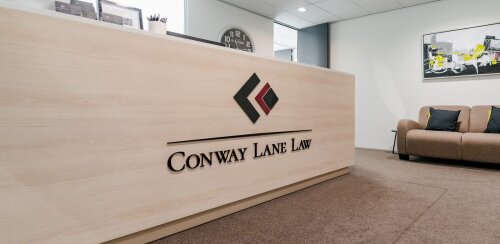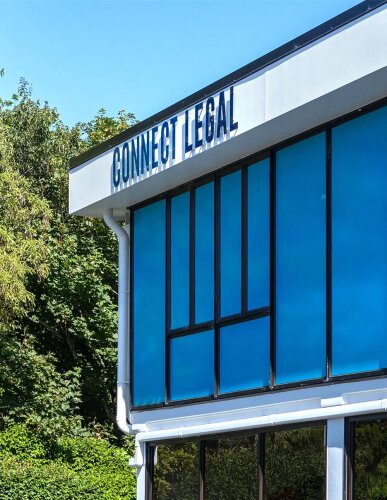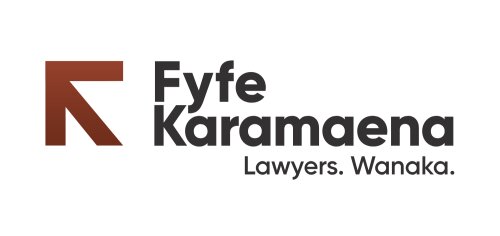Best Due Diligence Lawyers in New Zealand
Share your needs with us, get contacted by law firms.
Free. Takes 2 min.
Or refine your search by selecting a city:
List of the best lawyers in New Zealand
About Due Diligence Law in New Zealand:
Due diligence is a crucial aspect of business and legal transactions in New Zealand. It involves conducting a thorough investigation and assessment of the risks and opportunities associated with a particular transaction or business deal. This process helps ensure that parties are fully informed before making any decisions.
Why You May Need a Lawyer:
You may need a lawyer to assist you with Due Diligence in situations such as buying or selling a business, entering into a partnership or joint venture, or making a significant investment. A lawyer can help you navigate complex legal requirements, protect your interests, and ensure that the Due Diligence process is thorough and effective.
Local Laws Overview:
In New Zealand, Due Diligence is governed by various laws and regulations, including the Companies Act 1993, the Financial Markets Conduct Act 2013, and the Contract and Commercial Law Act 2017. These laws set out the responsibilities of parties involved in Due Diligence and establish the legal framework for conducting thorough investigations.
Frequently Asked Questions:
1. What is the purpose of Due Diligence?
The purpose of Due Diligence is to investigate and assess the risks and opportunities associated with a particular transaction or business deal. It helps parties make informed decisions and protect their interests.
2. Who is responsible for conducting Due Diligence?
Typically, both parties involved in a transaction are responsible for conducting their own Due Diligence. However, it is crucial to work with legal advisors to ensure that the process is thorough and compliant with relevant laws.
3. What are some common issues that may arise during Due Diligence?
Common issues that may arise during Due Diligence include undisclosed liabilities, regulatory non-compliance, intellectual property disputes, and inaccuracies in financial statements.
4. How long does Due Diligence typically take?
The timeframe for Due Diligence can vary depending on the complexity of the transaction and the amount of information that needs to be reviewed. It can range from a few weeks to several months.
5. What happens if issues are uncovered during Due Diligence?
If issues are uncovered during Due Diligence, parties may need to renegotiate terms, seek additional assurances, or even terminate the transaction. Legal advisors can help navigate these challenges and find the best solutions.
6. What role does a lawyer play in the Due Diligence process?
A lawyer plays a crucial role in the Due Diligence process by providing legal guidance, reviewing documentation, identifying risks, and ensuring compliance with relevant laws and regulations.
7. Can Due Diligence be conducted remotely?
Due Diligence can be conducted remotely, especially with the use of technology and online platforms. However, in some cases, in-person meetings and inspections may be necessary.
8. Is Due Diligence required for every transaction?
While Due Diligence is not always mandatory, it is highly recommended for most significant transactions to protect the parties involved and avoid potential risks and liabilities.
9. How much does Due Diligence typically cost?
The cost of Due Diligence can vary depending on the scope of the investigation, the complexity of the transaction, and the nature of legal assistance required. It is important to discuss and agree on fees with your legal advisor in advance.
10. What should I look for in a legal advisor for Due Diligence?
When choosing a legal advisor for Due Diligence, look for expertise in commercial law, experience in similar transactions, good communication skills, and a proactive approach to problem-solving. It is essential to work with someone you trust and feel comfortable with.
Additional Resources:
For additional resources on Due Diligence in New Zealand, you may consider contacting the New Zealand Law Society, the Commerce Commission, or seeking guidance from reputable law firms specializing in commercial and corporate law.
Next Steps:
If you require legal assistance with Due Diligence in New Zealand, it is crucial to consult with a qualified lawyer who can guide you through the process, protect your interests, and ensure compliance with local laws and regulations. Take the time to research and choose a legal advisor who has the expertise and experience necessary to support you effectively.
Lawzana helps you find the best lawyers and law firms in New Zealand through a curated and pre-screened list of qualified legal professionals. Our platform offers rankings and detailed profiles of attorneys and law firms, allowing you to compare based on practice areas, including Due Diligence, experience, and client feedback.
Each profile includes a description of the firm's areas of practice, client reviews, team members and partners, year of establishment, spoken languages, office locations, contact information, social media presence, and any published articles or resources. Most firms on our platform speak English and are experienced in both local and international legal matters.
Get a quote from top-rated law firms in New Zealand — quickly, securely, and without unnecessary hassle.
Disclaimer:
The information provided on this page is for general informational purposes only and does not constitute legal advice. While we strive to ensure the accuracy and relevance of the content, legal information may change over time, and interpretations of the law can vary. You should always consult with a qualified legal professional for advice specific to your situation.
We disclaim all liability for actions taken or not taken based on the content of this page. If you believe any information is incorrect or outdated, please contact us, and we will review and update it where appropriate.
Browse due diligence law firms by city in New Zealand
Refine your search by selecting a city.
















